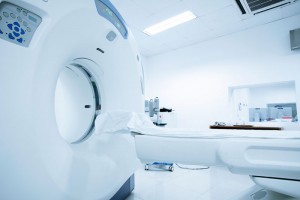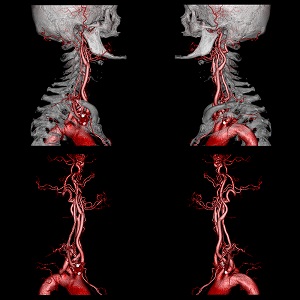What is a Cardiac CT scan?
A Cardiac CT Scan records pictures of your heart. Before the pictures are taken, dye is injected into a vein (in your arm). The dye highlights any blockages in your coronary arteries, helping to diagnose coronary artery disease.

What are the risks of a Cardiac CT Scan?

Severe reactions to Cardia CT Scan are rare, some of the risks include:
- Allergic reactions to the X-ray dye (tell your doctor about your allergies)
- Kidney related problems as a result of the X-ray dye (tell your doctor if you have a history of kidney problems)
- Headache from medication given during the procedure
If you have any concerns about the risks, talk to us.
How do I prepare for a Cardiac CT Scan?
To prepare for a Cardiac CT Scan, you need to:
- Limitations of caffeine intake, including tea, coffee, chocolate and cola. They can increase your heartrate.
- Bring a guardian – someone to help you before, during and after your procedure
You may need to take medication to slow your heart rate, as Cardiac CT Scan images are clearer when your heart rate is lower. If you have diabetes, kidney problems, asthma or allergies, you may not be able to have a Cardiac CT Scan. In this case, your doctor will be able to advise you on another treatment.
What happens during a Cardiac CT Scan?
Here’s what usually happens during a Cardiac CT Scan:
- You will be taken to the Scan room and will be asked to put on a hospital gown
- You will lay down on a Cardiac CT Scanning bed.
- You will then be connected to a heart rate monitor.
- The X-ray dye will be injected in to your vein.
- You will be asked to stay still and hold your breath for imaging.
What happens after a CTCA?
As soon as the CTCA is finished, you’ll be taken to a recovery area, and doctors will observe you to ensure you’re recovering well. The cannula will be removed from your arm, and if you’re feeling well you can go home. Your doctor will make a follow-up appointment with you to discuss the results of your CTCA. If the images show narrowing or blockages, your doctor will help you to decide the best treatment option for you.
Why do I need a Cardiac CT Scan?
Your doctor may recommend a Cardiac CT Scan if you have symptoms of coronary artery disease, such as:
- Pain or discomfort in your arms, left shoulder, back, neck, jaw, or stomach
- Irregular heart beat (arrhythmia)
- Difficulty breathing
- Excessive sweating
- Indigestion or heartburn
- Nausea or vomiting
- Light-headedness or dizziness
For more information, do not hesitate to contact our friendly staff here.
